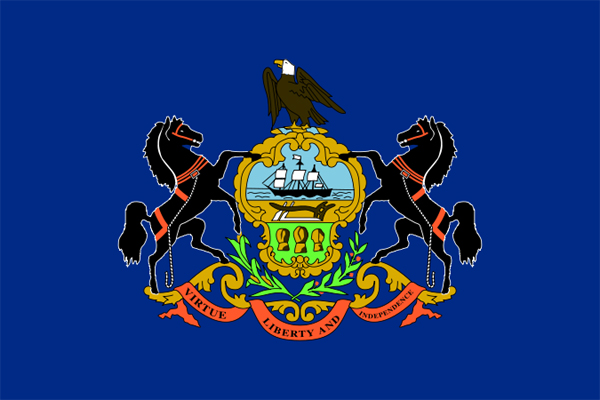Harrisburg, PA – Department of Human Services (DHS) Secretary Teresa Miller and Department of Agriculture Deputy Secretary for Market Development Cheryl Cook Monday joined representatives from several charitable food organizations, food retailers, and a food assistance recipient at the Central Pennsylvania Food Bank to discuss the effects from the Trump Administration’s numerous attacks on the Supplemental Nutrition Access Program (SNAP). Cuts and changes to eligibility for the program will negatively affect food banks across the state, thousands of vulnerable Pennsylvanians, and Pennsylvania’s economy.
“SNAP is not just the nation’s most important anti-hunger program – it helps support local farmers and small businesses and grows economies around the country,” Sec. Miller said. “If proposed federal changes to the SNAP program take effect, the negative impacts will be felt well beyond the thousands of SNAP recipients who will be hurt. Without SNAP, charitable food networks will see an increased demand that they may be unable to meet, and retailers and food producers will experience lost profits from a decreased or more constrained customer base.”
SNAP helps more than 1.7 million Pennsylvanians access food, including about 700,000 children, about 690,000 people with disabilities, and about 300,000 older adults. If people receive less SNAP benefits each month or lose eligibility altogether, they may not have flexibility to make up the cut to their food budget without missing bills or giving up other basic needs. People will turn to local food banks, pantries, and soup kitchen to help meet this need, which creates additional strain on charitable food networks that operate on limited resources.
In addition to SNAP helping 1.7 million Pennsylvanians keep food on the table and avoid chronic hunger, SNAP helps local economies. More than 10,000 authorized retailers participate in SNAP across Pennsylvania, and these retailers redeemed about $2.6 billion in SNAP benefits in 2018 according to the USDA.
In May 2019, the United States Department of Agriculture (USDA) published a study on the influence of SNAP redemptions on the economy and county-level employment in the time leading up to, during, and after the Great Recession. This study found that SNAP redemptions could have a greater economic stimulus impact than many other forms of government spending per dollar spent, especially during a recession, because they are paid directly to low-income individuals. For instance, the grocery subsidies deliver food directly to tables along with a financial return into rural supermarkets and small businesses in those communities.
- The Trump Administration has proposed two rules and has finalized a third that will jeopardize access to SNAP: Abled-Bodied Adults Without Dependents (ABAWDs) final rule: In December 2019, the Trump Administration published a final rule, that goes into effect April 2020, that restricts states’ ability to determine which counties can be waived from work requirements for able-bodied adults without dependents, which are waived due to local unemployment rates. The ability to waive counties is now based on federally determined Labor Market Areas and on economic factors like excess labor and high unemployment.
The new rule lowers the threshold for unemployment rates those areas must meet to qualify for a waiver and removes state flexibility to determine which counties should be waived, despite states being better positioned to determine the economic environment in the local economies.
This rule change will jeopardize access to SNAP for more than 92,000 people, many of whom struggle with mental health, substance use disorder, and other long-term conditions that would be worsened by chronic hunger.
- Broad-Based Categorical Eligibility (BBCE) proposed rule: The Trump Administration in July announced a proposal to eliminate BBCE for SNAP. BBCE is a policy that gives states, including Pennsylvania, the flexibility to determine appropriate income thresholds and extend SNAP benefits to low-income families and individuals who would otherwise struggle to afford food. With BBCE, a Pennsylvania family of four is eligible for SNAP if they earn no more than about $40,000 a year. If BBCE is eliminated, that family of four’s SNAP eligibility limit will drop from about $40,000 a year to no more than $32,000 a year. For elderly single-person households, the limit would change from approximately $24,000 a year to about $15,000.
Eliminating BBCE also impacts the ability for low-income children to receive free and reduced-price school lunches. Families whose children are eligible for SNAP receive direct certification for eligibility for free and reduced-price lunches. If fewer families qualify for SNAP, those children will not receive direct certification. Additionally, in districts where 40 percent or more children receive free and reduced-price lunches, the school qualifies for the Community Eligibility Provision, which allows schools and school districts in low-income areas to provide free school lunches to the entire school. Reduction in the number of children receiving direct certification may mean entire districts lose their ability to provide free meals for all students.
- Heating/Cooling Standard Utility Allowance (SUA) proposed rule: And in October, the Trump Administration announced a proposal to alter the method Pennsylvania uses to determine the Heating/Cooling SUA for SNAP recipients, which could negatively affect approximately 775,000 households in Pennsylvania. When DHS determines that a household is eligible for SNAP, to determine the value of the grant they will receive, the SUA is used as a factor; acknowledging that money needed to pay for shelter and utilities is not available to be used to purchase food. The Trump Administration’s rule would use a standard formula to determine each state’s SUA for the entire country, ignoring costs of living and utility rates that vary from state to state. The proposed rule impacts the Northeast states more significantly than the rest of the country due to the information used in the calculation. In Pennsylvania, each reduction in the SUA of $10 equates to a $2 to $3 reduction in SNAP benefits. If the Heating and Cooling SUA was reduced by $200, for example, most households would see a reduction in SNAP benefits of $40 to $60 per month.
“Our Food Bank vocally supported the 2018 Farm Bill, which maintained flexibility at the state and local level for SNAP administration,” said Joe Arthur, Executive Director of the Central Pennsylvania Food Bank. “By removing local flexibility, these rule changes will take access to food away from thousands of our clients, including many children, while the charitable food system is already strained. We also worry about the economic impact to our local food businesses, including farmers.”
“Every one of these rule changes hurts vulnerable people and organizations in Pennsylvania and around the country. Every one of these rule changes forces people who are already in difficult positions to make the unconscionable choice of paying for food or paying for other necessities like utilities, rent, or medicine,” said Secretary Miller. “Food assistance is a simple investment in the public good for all of us. We must lift up the stories of the many Pennsylvanians for whom food assistance programs like SNAP and the help from charitable food organizations is invaluable and protect and preserve these life-saving resources.”
For more information on SNAP, visit www.dhs.pa.gov.




